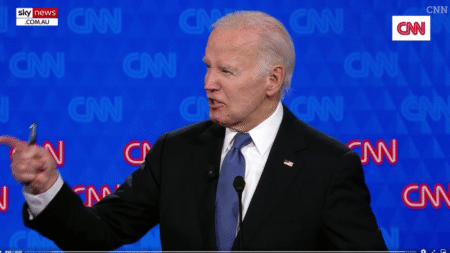The Justice Department has asked the U.S. Supreme Court to shut down a lower court blockade against President Trump’s bid to fire a top official at the Library of Congress.
In an emergency application for stay filed on Monday, U.S. Solicitor General D. John Sauer requested that the nation’s highest court temporarily pause an injunction issued last month by a three-judge panel on the D.C. Circuit Court of Appeals. That panel (2-1) attempted to block the Trump administration’s firing of Shira Perlmutter, who headed up the U.S. Copyright Office in the Library of Congress since 2020 until her termination in May.
Perlmutter’s dismissal came shortly after Trump removed Obama-appointed Carla Hayden as Librarian of Congress. Hayden has been replaced by Deputy Attorney General Todd Blanche, who is filling the position on an “acting” basis.
Following her termination, Perlmutter sued the federal government, claiming that Trump lacked the authority to implement a temporary Librarian of Congress and that only the latter can appoint and remove registers of the U.S. Copyright Office such as herself.
“In short, the President’s attempt to name Mr. Blanche as acting Librarian of Congress was unlawful and ineffective, and therefore Mr. Blanche cannot remove or replace Ms. Perlmutter,” the lawsuit reads.
In asking the Supreme Court to temporarily stay the D.C. Circuit Court’s injunction, Sauer argued that the administration’s newest application filed with the high court represents “another case of improper judicial interference with the President’s power to remove executive officers —here, the Register of Copyrights.” He specifically claimed that Perlmutter’s position is “an inferior officer appointed by the Librarian of Congress, who is, despite his title, a principal executive officer” and who “wields executive power by exercising ‘significant regulatory authority over copyrights’ … — impacting a wide array of crucial intellectual-property issues.”
“The Librarian and Register exercise powers that this Court has repeatedly classified as executive, such as the power to issue rules implementing a federal statute, to issue orders in administrative adjudications, and even to conduct foreign relations relating to copyright issues,” Sauer wrote. “The Librarian and Register are appointed under Article II’s Appointments Clause, not under Article I’s provisions authorizing each House of Congress to choose its own officers.”
“As in past cases where lower courts have impaired the President’s constitutional authority to oversee executive agencies, this Court should grant a stay: the case is certworthy, the President had authority to direct respondent’s removal, the D.C. Circuit lacked equitable authority to reinstate her, and the balance of equities favors the government,” he added.
The case is the latest in a series of legal disputes involving the president’s Article II authority to remove certain executive branch officials.
Earlier this year, for instance, SCOTUS granted the Trump administration’s request to temporarily pause a lower court injunction seeking to stop the president from firing a Democrat member of the Federal Trade Commission. Notably, the high court, while agreeing to take up and hear arguments in the case (Trump v. Slaughter), tasked both parties to address whether longstanding Supreme Court precedent (Humphrey’s Executor v. U.S.) that helped birth the administrative state should be overturned.
Read the full article here












